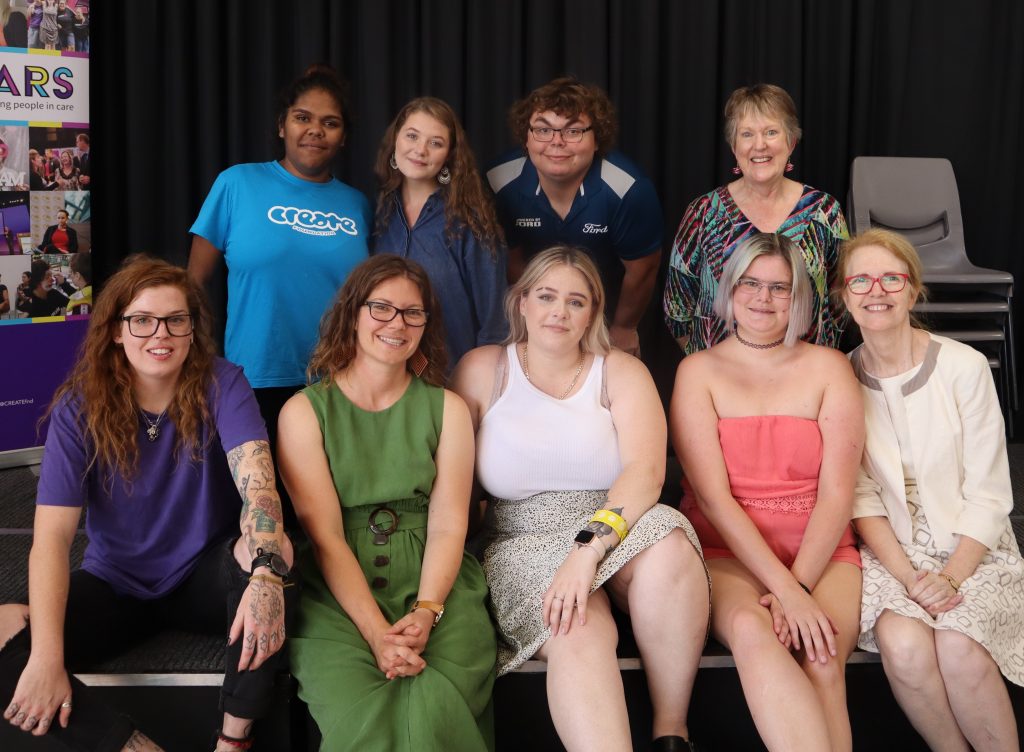
A group of incredible young adults with a care experience got the chance to share their personal stories last month in a bid to influence policy change, at CREATE Foundation’s first ever Hour of Power in SA.
The forum, which was led by the young adults themselves, provided an opportunity to tell the audience of their life experiences while in care and to offer ideas to key decision makers, including the Minister for Child Protection, about how to improve the care system.
Sibling contact and cultural connection were the themes for the day.
For those presenting, their siblings were important in maintaining their identity and mental wellbeing, and yet many of them did not live with them while they were in care and/or had issues keeping in contact with them.
“When you don’t live with your siblings, it can be hard to connect with them when you do see them,” one young person said.
After reflecting on their experiences with their own siblings, the young people offered ways in which the system could change to improve sibling contact for those who are still in care, which included:
- DCP must place greater significance on sibling connection and the importance of sibling relationships
- siblings should be able to stay together, wherever possible
- if siblings cannot stay together, they must be able to maintain connection with one another while in care
- sibling connection arrangements should be included in case planning
- the term ‘sibling’ needs to encompass other cultural and social interpretations to include other important relationships like cousins and foster siblings.
The young people then asked the panel to reflect on the issue. Guardian Penny Wright was among the panellists, along with April Lawrie, Commissioner for Aboriginal Children and Young People, Helen Connolly, Commissioner for Children and Young People, and Cathy Taylor, Chief Executive of Child Protection.
Penny told the audience one of the biggest concerns from young people who call our office for advocacy support is about sibling contact not occurring (or occurring infrequently and much less often than children/young people are requesting) and outlined the barriers that standi in the way of this happening.
“There are a number of factors behind why sibling contact isn’t occurring. They include carers or case managers in disagreement about sibling contact, the challenge of siblings living in distant geographical locations, lack of transport and time pressures on carers,” Penny said.
“Managing sibling contact among children in care can be complex. This doesn’t mean we don’t do it, it just means we have to work harder.”
Cultural connection was the next topic for the forum. One of the young adults said they didn’t know how to connect with culture while they were in residential care and weren’t given the opportunities to do so, but once they got to connect to family, land and their culture they said “it was natural”.
“To know your cultural identity, at least for me, is seeing family regularly, getting a chance to go out to the bush often, learn about bush tucker, connection and cleansing, learn about dreamtime, totems and spend time with the old fellas and nanas,” the young person said.
To improve and maintain cultural identity and connection for young people in care, the youth presenters were clear that DCP needs to prioritise connections to family and strengthen the commitment to all of the five elements of the Aboriginal and Torres Strait Islander Child Placement Principle. They also said more funding needs to go to enriching cultural experiences, as well as employing more Aboriginal workers within the sector.
The event was a fantastic platform for empowering the young adults to share their thoughts and suggestions and play a positive role in creating change for the many thousands of children and young people who are still in care today.
Jacqui Reed, the CEO of CREATE, observed that the Hour of Power was a unique way of bringing children and young people’s voices to decision makers so they could better understand the perspective of those with a lived experience within the care system.
“I was thrilled with the first ever Hour of Power in South Australia. The energy in the room buoyed all those present to make the system better for children and young people,” Jacqui said.
CREATE is currently working on a summary report about the forum, along with its key outcomes, which will be available soon.
